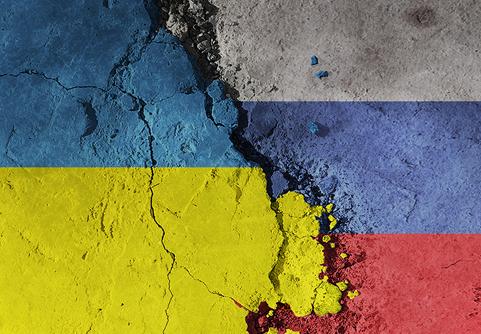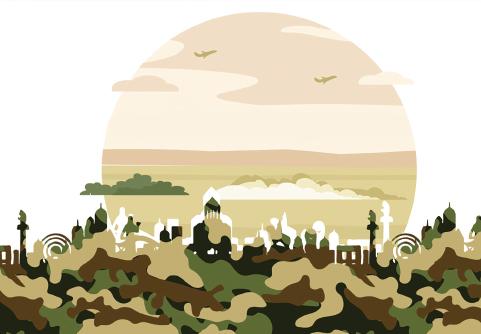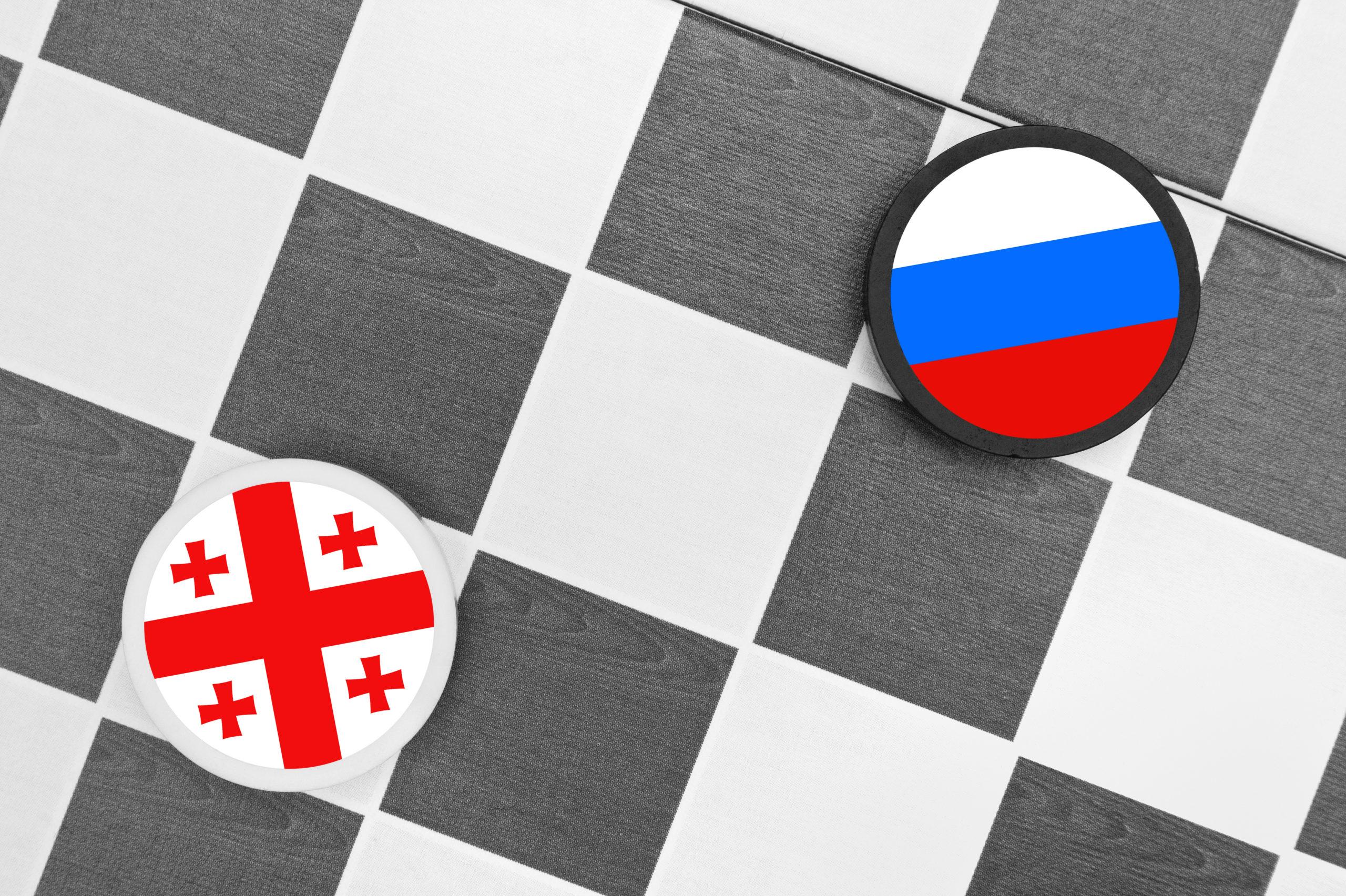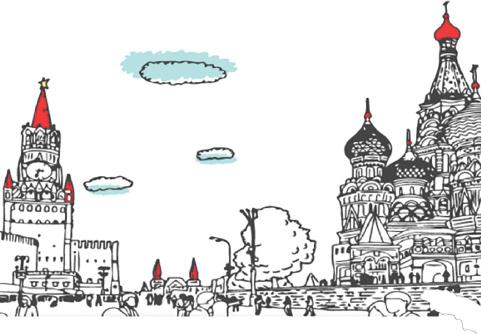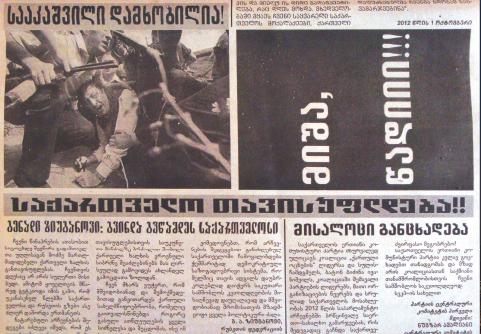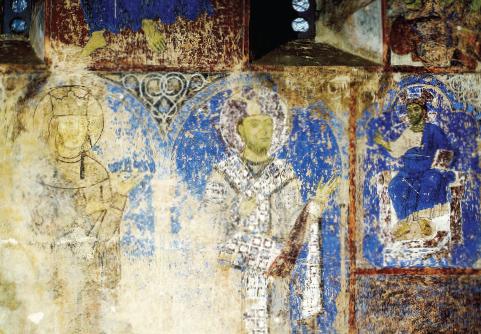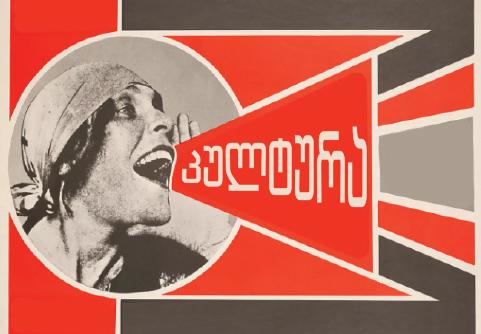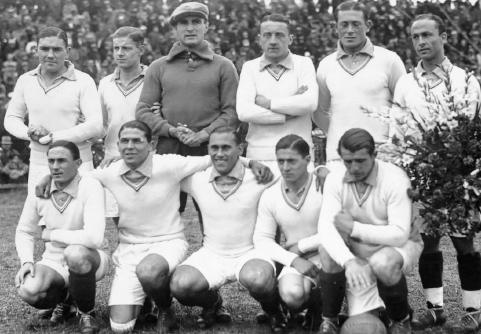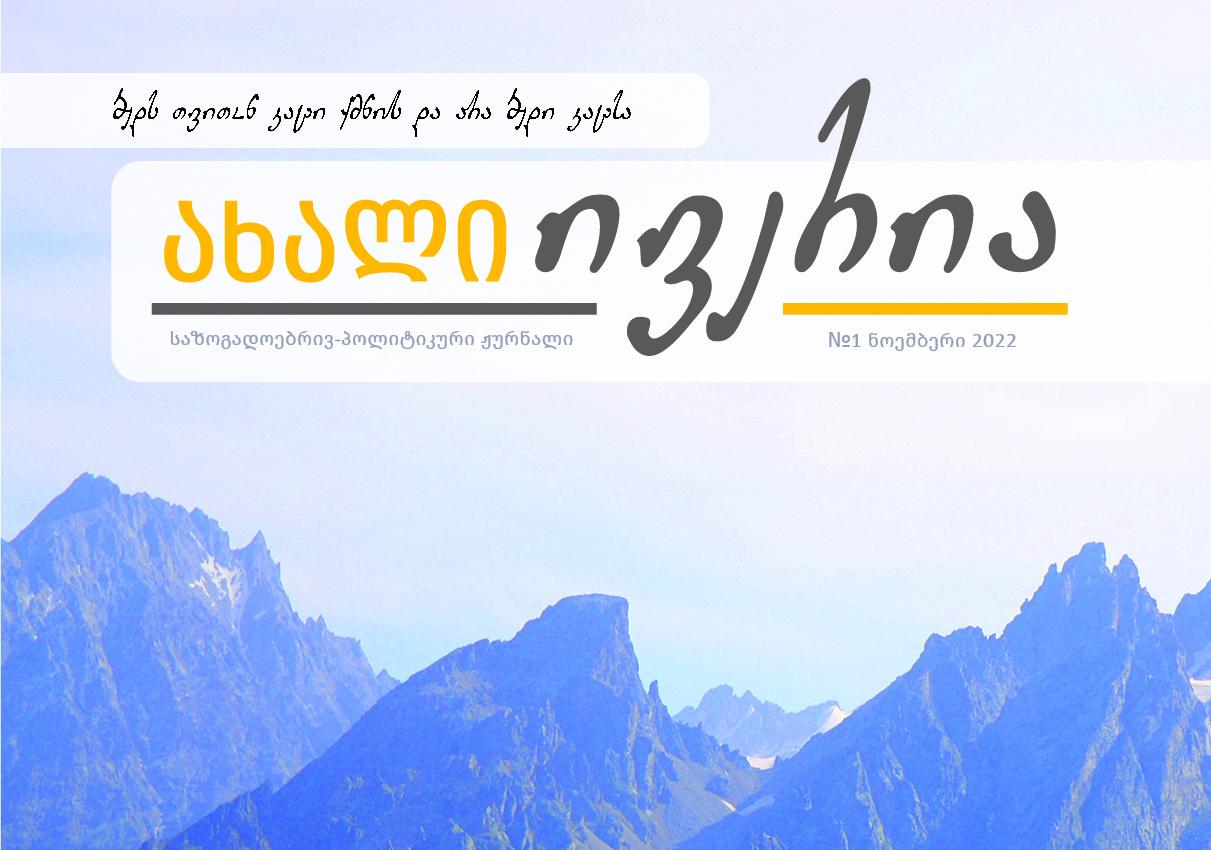
Author : Zaza Bibilashvili

(In connection with the release of the first edition of “The New Iveria”)
My generation was destined to live in interesting times. So many were born, grew up, turned grey, grew old and died in the same, boring, unpromising reality. So many accepted that reality as a given, found it irresistible and eternal. It is no joke to live at the junction of centuries, millennia, epochs and even passively participate in such tectonic geopolitical changes, which a few years ago were unimaginable even in the most daring of fantasies.
We were born in the Soviet Union. We grew up in the era of the destruction of the Evil Empire and the struggle for freedom. We gained our independence at a very young age, but were given no time to rejoice: The country and hundreds of thousands of human lives were sacrificed to a recklessness of a galactic dimension, and the joy of freedom was overshadowed by a cascade of misfortunes. When we reached adulthood, we were told that all was well, democracy had won in the world, and that is was the “end of history” (though, in Georgia, everything was very, very bad). We soon showed ourselves again; we were even a little lucky. We pulled ourselves out of the swamp by the scruff of the neck – while some parts of the body were pulling the rest down – rubbed our eyes, stopped torturing ourselves, and came out of the world of exotic myths, shattering age-old stereotypes. We saw and believed that we could be competitive, victorious, or even create a model of development for others, if we only wanted and tried to. Finally, we returned to the eternal Georgian helplessness, the comfort of provincial conformism, servility, and our self-willed mediocrity before the enemy, when we were told through the mouth of an ignorant oligarch that Georgia was a small village that should “know its place”.
All this time the average Georgian had most always been a passive observer. With us, it has always been the few who have fought. Our society has also perfectly adapted to the mantle of the public not having any function – fetishizing individual heroes and believing in their uniqueness (as if to emphasize that no one should expect such idealism from us), shifting our responsibility to these heroes and embodying in them virtually (through a poem, a toast, a TV appearance)... At the same time, a considerable number of people have always chosen “understanding”, “relationships”, or conformism as a way of life. Conformism, which, if historians and travelers are to be believed, has been our primary tradition for centuries. A tradition that has become a guaranteed recipe for poverty, misery, and failure for Georgians. The current collaborationist regime even conducts an Orwellian campaign to ennoble this vicious tradition. They preach as though swindling is valor, cowardice is prudence, serving the enemy is pragmatism and trading state interests for personal gains (what we used to call “treason” in the olden days) is “wisdom”. No mention is made of conformism, of course, but they are trying to convince us that it was this kind of wisdom that has “saved” us... The helpless minimalism of Georgian conformism is evident here:
“… has saved us.”
Survival is portrayed here as an achievement, as a standard worthy of aiming at.
However, if we had acted differently, we could have not only survived, but we could also have become rich and powerful. After all, more than two hundred nation-states have “survived”. And most of them are developing faster and more purposefully than us. Even those whom yesterday we looked down on with groundless arrogance – just as the Georgian nobility of the 19th century looked down on skilled artisans or rich merchants – are now becoming stronger, more prosperous, and more numerous than we are.
And we... we “have survived”.
Moreover, as Ivanashvili himself says in Stefan Toltz’s 2012 documentary Full Speed Westward, we pulled the handbrake of the country with our own hands.
At times like this, the question always arises, pathetic, meaningless and, again and again, devoid of any sense of individual responsibility:
“Shall anything help us?!”
And since we cannot avoid this question, let us think together:
What kind of country do we want to have and what should we be doing for it? I emphasize “be doing”, not “do”. That is, be doing all the time and not just once.
It seems like a trivial question, but if we look at history, there have been few that thought about it. Even fewer managed to engage in the day-to-day, consistent, “boring” work of realizing their vision – of turning their vision into such a work that it would not remain a one-off effort for the chronicler’s pen but would have appeared as a solid architrave built into the supporting wall of national history decades later.
You will say that we didn’t have time for this, and you would probably be right, however...
Maybe it was still possible to discern things better, or get better prepared for worst-case scenarios, and we failed because we just didn’t think about it? Maybe because we took pride in something that, in many cases, was nothing to be proud of, and yet we sought salvation in the mercy or goodwill of others? Just take the myth of the carefree Georgians partying heartily and being late to the distribution of land by God... How we love to tell this myth to tourists fascinated by our country!
I wonder what we were hoping for when we were late there? Didn’t we deserve to get what we, as the last in line, were worthy of getting, perhaps the most miserable scrap of land on the planet? But no! – God loved us”. We did not have to pay the price for our irresponsibility. We “survived” yet again. Perhaps this is where one of today’s most damaging, popular sayings comes from: “Something will come our way”. Again, a vague hope for time and a miracle, rather than a reflection on what will happen, how, from, where, and, most importantly, what we are doing to make it happen.
We, Georgians, are always rushing somewhere. So much so that we never have time to critically analyze the past, to turn mistakes into lessons, to draw practical conclusions from the path travelled, to look ahead, to see the big picture, to recognize danger in time, to learn to distinguish between the essential and the secondary, not to lose the sense of purpose, to plan, to prepare.
The routine work is less valued by us: We are rarely interested in something that does not produce immediate and tangible results. We live in the present and hope that one day the flow of time will carry us to our goal. However, crossing out the dates on the wall calendar does not change anything. On the contrary, there are many examples of countries and even entire civilizations that remained in the dark for a long time or even disappeared due to recklessness, greed, or simple idleness.
We have been this way for centuries, and the 21st century is no exception: Addressing long-term challenges is still an exotic fruit in Georgia. They listen to you, they like you, they praise you… This is very good, they tell you, but, well, when do we have time for that now – now there are bigger and more urgent problems that need to be addressed immediately, they will add. First there is a great goal to achieve, and then, someday, we might think about it. But that “then” never comes, and we never get down to those mundane, “boring”, necessary steps without which the “then” would never come. As a result, the “great goal” is left aside, and we don’t even understand why this always happens to us and what prevents us from succeeding. At the very least, we would sigh about who has cursed us and start looking elsewhere for the guilty party...
Under these conditions, with the support of friends who share our ideas, the social and political periodical The New Iveria was born in the fold of the Chavchavadze Centre.
Our ambition is to create a new space of thought and clichés to help Georgians, who are tired of the imposed hopelessness, to succeed in the modern competitive world.
Our mission is a forward-looking historical self-reflection, with the awareness that the last 30 years are the most relevant and useful history, with an inexhaustible mine of must-learn chess combinations.
Why do we keep going around the same circle? Is this fate or are we doing something wrong? Why were there always so few of us? Why have we always been so weak, except for a few glorious episodes in our long history? Why did we like it when foreign travelers would write good things about us or when our enemies, impressed by our bravery, would praise us? Why didn’t we praise others? Why couldn’t our travelers describe other nations? And why did we have no travelers at all? And anyway, what do we want, to be praised or to praise? The latter, after all, implies an advantage gained by winning. If we prefer to win, what should we do to allow ourselves the luxury of receiving praise from others? What can we do to wean ourselves from finding comfort in honorable defeat and from the orgasm of praise by others, and raise new generations possessing the will and drive to win?
A century and a half ago, Ilia Chavchavadze and his associates founded the Society for Spreading of Literacy Among Georgians – the most successful and long-lived non-governmental organization in the country’s history, which introduced a new standard in charitable and social activities. Back then, literacy came first. Reading and writing meant education, education meant progress and success. Now that – at least formally – literacy is no longer an issue, Georgian society is facing new challenges:
We must be able to pass propaganda and misinformation through a critical filter, get rid of bias and prejudice, extract the substance from what we read or hear, see the context, determine priorities, distinguish good from evil, replace conformism with civic virtue, reunite a territorially and mentally fractured nation with a memory-based identity... It is to this end that we present the social and political journal, The New Iveria. Read it. Share it. Spread the word. Write to us. Get involved. Get us engaged. In the meantime, we wish you victory and peace! In that order.
Next year in Sokhumi.
